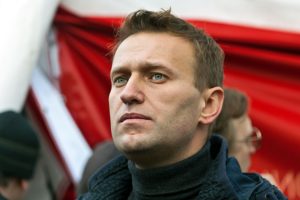Two years on since Russia launched a full-scale invasion of Ukraine, President Vladimir Putin’s grip has tightened across society. The recent death of opposition leader Alexei Navalny, held in an Arctic prison camp, is a timely reminder of suppression at large. For Russian philanthropy, these are testing times.
Foundations and NGOs operate under extremely authoritarian conditions, much worse than before the Ukraine War. ‘Anything ‘wrong’ people say can be used against them and endanger their safety,’ warns a Russian practitioner in philanthropy, formerly connected to a large Russian foundation. They speak to Alliance on the condition of anonymity, for fear of endangering the safety of ex-colleagues and family in Russia.
Such fear is palpable in the voices and communication Alliance receives. Those who do openly speak live abroad for relative safety, beyond the reach of authorities.
 Russian dissident, Alexei Navalny, died mid-February
Russian dissident, Alexei Navalny, died mid-February
Subscribe now from only £45 a year!
This article is only available for our subscribers
Existing users can login here


